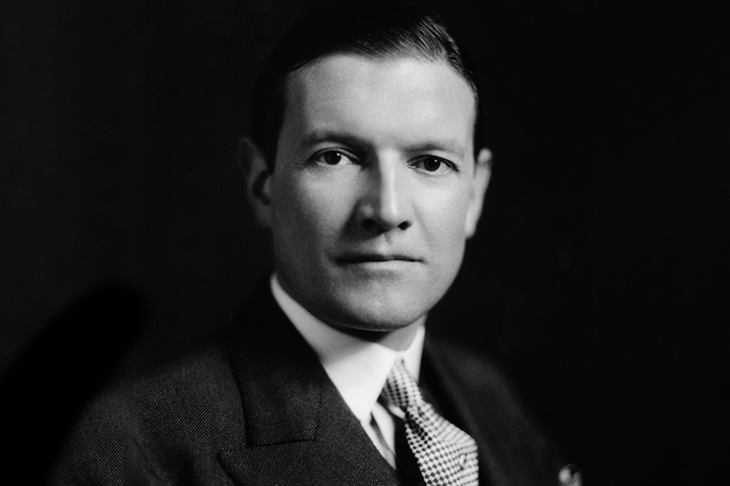Most of the grander 20th-century diarists had a sniffy air about them, looking down their noses at everyone, particularly each other. Henry ‘Chips’ Channon, so snippety in his own diaries, was sniped at in others’. James Lees-Milne thought him ‘a flibbertigibbet’; to Nancy Mitford, he was ‘vain and spiteful and silly’. Kenneth Rose confided to his diary that Channon was ‘a rather stupid man’. When the bowdlerised Channon diaries were first published in 1967, edited by Robert Rhodes James, Rose could not disguise his thrill at how badly they had gone down in his own smart set. At a ‘luncheon party given by Raine Dartmouth at her pretty house in Hill Street… we talk a great deal about the Chips Channon diaries, and all agree how ghastly they are’. The next day, Rose chats to Channon’s old boss, Rab Butler: ‘He says he is disgusted by the Chips Channon diaries.’ Two years later, Rose is still at it: ‘Lord David Cecil, I hear, very much objected to Chips Channon’s diaries, calling him a “traitorous bugger”.’
Rose and the other diarists are no longer with us, which means they are spared the need to read this big, fat, spankingly unexpurgated volume. In his introduction, Simon Heffer explains that many of Channon’s victims were still going strong in 1967, so might have sued the publishers for libel. Channon’s partner and executor, Peter Coats, expunged ‘page after page’, including Channon’s pre-war admiration for the Nazis, his dislike of Churchill, and his multifarious sexual exploits.
Channon’s former wife, Lady Honor, also made merry with the blue pencil, striking out uncharitable references to herself and to the Queen Mother and King George VI (‘he is completely uninteresting, undistinguished and a godawful bore!’). She also safeguarded their son Paul’s political career by removing Channon’s many snooty remarks (‘I despise them really, and their silly standards’) about the people of Southend, which, since 1918, had been the hand-me-down parliamentary constituency of her father, her mother, her husband and now her son.







Comments
Join the debate for just £1 a month
Be part of the conversation with other Spectator readers by getting your first three months for £3.
UNLOCK ACCESS Just £1 a monthAlready a subscriber? Log in